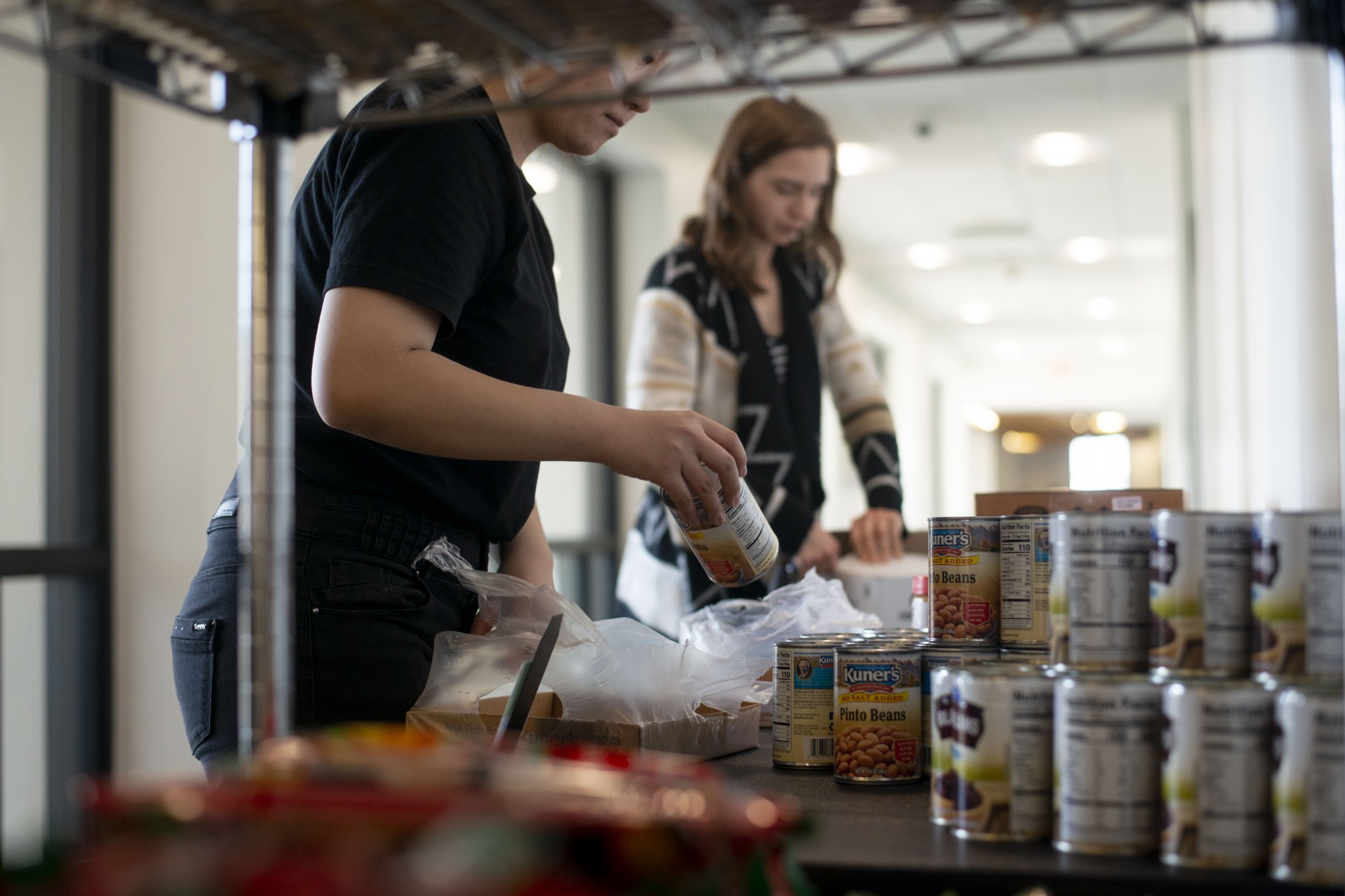The food shelf at the Church of Minneapolis normally served about two families each month.
But since the coronavirus pandemic, the church near Dinkytown now distributes three to four packages of food a week, said India Slack, administrative assistant for Resurrecting Faith World Ministries, which operates the food shelf.
At the Glendale Food Shelf in Prospect Park, the nonprofit East Side Neighborhood Services is also preparing to meet the growing need.
“Over the past few weeks, we’ve seen increased demand for all of our food shelves, and have been working hard and recruiting volunteers to help meet that demand,” said ESNS communications manager Jay Ross in a statement.
Late last month, the state Legislature passed a $330 million COVID-19 relief package, which includes $9 million for food banks and food shelves statewide. The funding will provide much-needed assistance to food shelves in the University’s surrounding neighborhoods as they see heightening demand amid the outbreak.
Rep. Mohamud Noor, DFL-Minneapolis, said lawmakers anticipated food insecurity would be a consequence of the economic downturn caused by COVID-19, which disproportionately affects low-income individuals, seniors and those with disabilities.
Food shelves like the one managed by the Brian Coyle Center in Cedar-Riverside, which also doubles as a pick-up site for Minneapolis Public Schools’s food delivery program while schools are closed, support community members most in need. The funds will help prevent those resources from being overwhelmed as more families turn to them for assistance, he said.
“For those who cannot go to buy their own groceries, for those who need a healthy meal, we had to make sure that we provided them the help that they need,” Noor said.
ESNS runs an additional food shelf for seniors and a mobile food shelf service that serves 46 public housing high-rises across Hennepin County.
Rob Haarsager, ESNS’s director of food programs, said their programs have seen a 25% increase in demand overall, though some buildings required twice as many donations. Meanwhile, much of their staff have gone into self-isolation due to their age and underlying health conditions.
The state funding will help the programs purchase additional food, hire staff to boost their delivery services and ensure access to food for low-income individuals and seniors they serve, he said. Though ESNS has not received the relief funds as of Monday, the nonprofit is currently being supported by state, federal and county funding, as well as increased donations.
“There’s an opportunity here for us to do even more than what we are because of the generosity of funding that’s coming in,” Haarsager said.
As the coronavirus outbreak continues indefinitely, Noor said lawmakers are working to find additional ways to further combat food insecurity. Solutions could include expediting the Supplemental Nutrition Assistance Program application process and expanding employment opportunities for individuals who have been laid off.
“We know we have a lot of work to do,” Noor said. “We’re still going through the process of understanding what we need to do, and also reacting to it quickly rather than waiting for too long.”



















